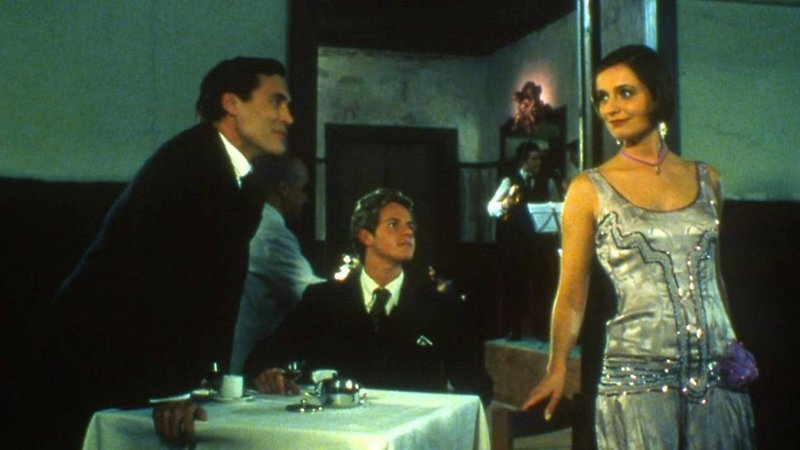
Screened as part of NZIFF 2002
Oporto of My Childhood 2001
Porto da minha infancia
The films of Portugese old master (92 and counting) Manoel de Oliveira have proved frustratingly elusive until now, with only the icy, gothic The Convent reaching local screens. It’s consequently a rare treat to have two of the director’s films in this year’s festival. The magnificent I’m Going Home has garnered accolades all around the world, but this smaller, more experimental and thoroughly beguiling memory piece is no less impressive: an old man’s film in the best possible sense, packing generations of experience and craft into a relaxed 60 minutes.
Oporto of My Childhood is a fragmentary reimagining – through photographs, archival footage and artful re-enactment – of the city of de Oliveira’s youth. The precision of the director’s vision – and his great age – persuade us that this Oporto is indeed a lost city, one we’re privileged to experience before it fades from the world’s memory. ‘From passion to passion I became the filmmaker I am today,’ intones de Oliveira (the film is narrated by versions of its author), as his film, in step with his wandering mind, glides associatively from passion to passion: a nurse’s song, the melancholy pleasures of fado singing, a visit to the confectioner’s, equestrian statues, horses’ hooves on cobblestones, and a fear of thieves. De Oliveira’s remembered world is not a painstaking recreation, but an impressionistic assemblage of discrete elements: sounds (including a dramatic, Stravinskyesque score by Philippe Morel that we are not permitted to ignore), sites (often depopulated, as in a dream) and small detached incidents. The art and architecture of the city are revivified as the filmmaker visits old haunts altered beyond recognition or, perhaps more eerily, restored precisely to their former glory.
As well as being a paean to a great city and a past age, Oporto of My Childhood is also a beautifully oblique autobiography in which we get the full flavour, if little of the detail, of a long life well lived, and in which the history of Portugese cinema dreamily blends, not unreasonably, with the history of de Oliveira’s own. — Andrew Langridge